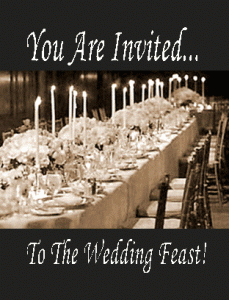Sermon Excerpt:
I still remember the first sermon I ever preached. Actually, I remember the preparation far better than the actual message . . . Thankfully no parishioners were exposed to or harmed by my effort.
During the spring semester of my freshman year in college, I took an introductory course on preaching. The goal was to learn how to prepare a sermon, and how to deliver it.
When it came time to actually work on our own sermons the first task was to select a passage of Scripture to use as our text. The only requirements were that it could not be a passage someone else had selected and it could not be something the professor called a “hard passage.”
I will admit that I had never considered any part of the Bible hard – not until that moment. The professor knew that as beginning students we were not yet ready to handle some of the more challenging passages. To make life simpler and ensure we didn’t accidentally select a hard passage we could check to ensure a passage we were considering wasn’t included in books of hard sayings – books with titles that included Hard Sayings of the Old Testament, Hard Sayings of Jesus and Hard Sayings of Paul.
This morning’s passage includes one of Jesus’ “hard sayings.” Most of us don’t typically think of Jesus as someone condemning people to a reality marked by “weeping and gnashing of teeth.”
John Dominic Crossan calls this remark one of the “nastiest threats ever placed on the lips of Jesus.” Interestingly, he notes that it’s one Matthew seems to favor. In Matthew’s version of the gospel Jesus uses this phrase to conclude a parable a total of five times.
Since this hard saying comes at the end of the parable, I want to set it aside for now while we consider what the full parable means. And, to be honest, I need to offer a disclaimer: the entire parable counts as a hard passage – as one that is difficult to interpret.
Thankfully I didn’t stop learning about preaching or about studying the Bible when I passed my first preaching course. As time has passed instead of intentionally staying away from passages like ours, I have found myself drawn to them.
So what is this morning’s parable of the wedding banquet really all about? How would the original hearers have understood it? What does it mean for us today?
Any attempt to answer these questions must . . . (read full manuscript)
So What?
People who follow the Way of Jesus believe in the equality of all people, and the right of all people to have full personhood. Showing up – naming the issues that keep all people from such (including racism or limiting the free exercise of religion) – is a good start, but isn’t enough. Further action is required.
- Will you pledge to do whatever is within your power to ensure all people have certain basic rights – inalienable rights – God-given rights?
- What are you currently doing to help expand the number of people in your community and in the world who have such rights in full? What is your congregation doing?
